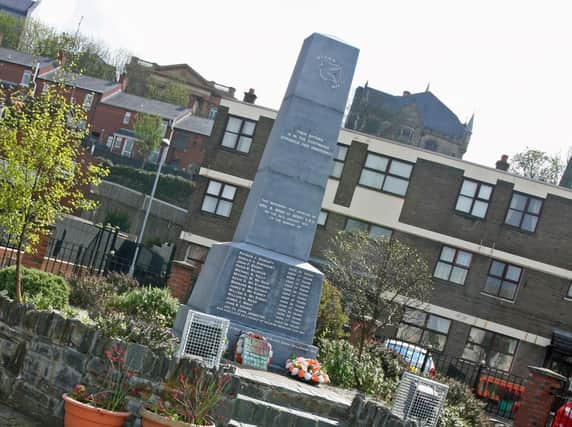Decision not to charge Bloody Sunday paratroopers 'bordering on perversity' High Court told


Counsel for the family of Bernard McGuigan claimed there was enough admissible evidence to put the British Army veteran known as Soldier F on trial.
Mr McGuigan, 41, was among 13 people killed when members of the Parachute Regiment opened fire on civil rights demonstrators in Derry on January 30, 1972.
Advertisement
Hide AdAdvertisement
Hide AdThe father-of-six had been waving a white handkerchief and going to the aid of another victim, 31-year-old Patrick Doherty, when hit by a bullet to the head.
In 2010 the Saville Inquiry into the events on Bloody Sunday established the innocence of all of those who died.
Relatives of seven of the victims are now taking legal action over decisions not to pursue criminal cases against five of the ex-servicemen involved.
In July the Public Prosecution Service (PPS) announced it was dropping charges against Soldier F for the murders of William McKinney, 26, and James Wray, 22, plus five counts of attempted murder.
Advertisement
Hide AdAdvertisement
Hide AdThe case against him was reviewed after the trial of two other military veterans for Troubles-era offences collapsed in Belfast earlier this year.
Based on an assessment of the admissibility of evidence from the time, it was concluded that the test for prosecution was no longer met.
The PPS is also being challenged for not charging former paratroopers with the murders of Jackie Duddy, 17, Michael Kelly, 17, John Young, 17, Michael McDaid, 20, and Mr McGuigan.
At the time of the shootings the Royal Military Police (RMP) took statements from soldiers who opened fire, with further accounts prepared for the original tribunal chaired by Lord Widgery in 1972.
Advertisement
Hide AdAdvertisement
Hide AdThe case involves a dispute about whether those statements would be ruled inadmissible in any criminal trial.
Lawyers for the families claim the prosecuting authority's assessment of the evidence is legally and fundamentally flawed.
Michael Mansfield QC, representing relatives of Mr McGuigan, focused on testimony given to the Widgery Tribunal - widely regarded as a whitewash due to its conclusions that paratroopers were fired on first.
He said soldiers had been "subjected to a very supportive, protective environment all the way through to the doors of the Widgery Tribunal".
Advertisement
Hide AdAdvertisement
Hide AdBut the barrister argued that no public assurances were given that military witnesses had immunity from prosecution.
Soldier F provided "exculpatory" evidence, claiming self-defence over the shooting of Mr McGuigan at the Rossville Flats, the court heard.
According to Mr Mansfield an accumulation of circumstantial evidence, as well as testimony from others at the scene, meant he had to admit being the paratrooper that fired.
"We have that admissible evidence from what he said at the tribunal without question," counsel said.
Advertisement
Hide AdAdvertisement
Hide Ad"If we are going to talk about fairness in the case, fairness to the family of Bernard McGuigan, it is totally unfair for this situation to have arisen.
"This decision, it's too glib to say it's perverse, but it's bordering on perversity.
"A court needs to determine this, there is every prospect that a court looking back in retrospect on all of this would be inclined to admit evidence which clearly places this soldier in the position that others put a soldier."
The hearing continues. ends